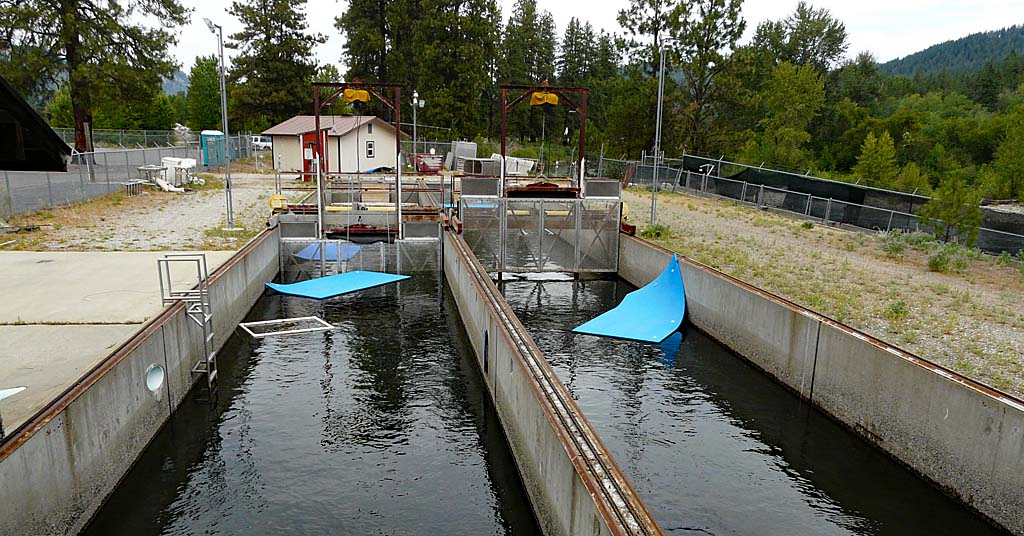Umatilla County battles logistics to get COVID-19 vaccine into arms
Published 6:00 am Thursday, January 7, 2021

- Hitzman
PENDLETON — Oregon Gov. Kate Brown said on Monday, Jan. 4, health officials must vaccinate state residents against COVID-19 as quickly as possible.
She said that by percentage of population, Oregon has administered about the same number of vaccinations as other states and distribution will continue to ramp up quickly.
Trending
“We have increased vaccinations from about 3,700 given in our first week to over 29,000 in the last week,” the governor said.
But still it is not fast enough, Brown added, noting she has directed Oregon Health Authority to reach a benchmark of 12,000 vaccinations administered per day by the end of the next two weeks.
That’s welcome news to Umatilla County health officials who have been asking the state for a firmer plan to get the vaccine into local arms.
It’s work that should have been happening weeks ago, said county public health director Joseph Fiumara, pointing out his department began preparing this past summer for a vaccine rollout.
Thanks to those months of preplanning, officials have crafted a road map to getting the county of 78,000 people immunized against the virus — those who want the vaccine, that is, and not including children.
But there has not been a verified timeline on how that’s going to happen, public health officer Dr. Jonathan Hitzman said on Jan. 4.
Trending
In the first transfer of vaccine from Oregon officials last week, Umatilla County received 2,400 doses: St. Anthony Hospital in Pendleton and Good Shepherd Medical Center in Hermiston both got an initial shipment of 700, while the public health department was given 200.
Good Shepherd then got another 800 doses, Hitzman said.
But, like in every other Oregon county, there’s no telling what — or if — vaccines will show up each week, Fiumara said.
Fiumara, Hitzman and deputy health director Alisha Lundgren apprised Umatilla County commissioners of the situation on Jan. 4.
It could be 100 doses or 1,000 doses to next land, Fiumara said.
“We have to see how much we get, then hurry up and plan for that number,” Lundgren told commissioners in a Jan. 4 morning staff meeting.
Moderna’s vaccine can be kept refrigerated for up to 30 days and is stable at room temperature for 12 hours, experts say.
The county’s logistical challenges with vaccinating the public are the same around the country at this moment, Hitzman explained later.
“I’m not sure there’s anyone or any group to blame, I think there are issues from the federal government to the states to local health departments. At the end of the day, it’s like all the cliches about government inefficiencies come to bear.”
The reality is, pandemic or no, government agencies are big and bureaucratic, not designed to be fast and nimble, Hitzman said.
“Until the federal doses arrive, the state doesn’t know how it will get administered. It’s a ‘Don’t shoot until you see the whites of their eyes’ situation.”
And with the surprising speed at which the vaccine was developed and produced, it caught governments even less prepared for a coordinated deployment of the shots, he added.
“The quote I’ve heard is that out of 12 million vaccines produced, only 3 million have gone into the arms of Americans.”
Fiumara said his department is obligated to dispense the vaccine as laid out by Oregon Health Authority, which is following federal guidelines.
“There are lots of variables and it’s dependent on so many things.”
There’s good news sprinkled throughout the scene, however, he and Hitzman said. They noted that the first doses to arrive were distributed to front-line health workers. And more manufacturers are racing to get their own version to market.
As well, mutual aid partnerships are springing up around the vaccination efforts. Pharmacies like Walgreens have contracted to inoculate residents of some long-term care facilities, Hitzman said, although he worries about disabled people who are cared for at home and might not learn of vaccination events.
Oregon Health & Science University in Portland has chipped in by loaning the health department an ultra-cold freezer required for the Pfizer vaccine formula.
While the county is now receiving the Moderna vaccine that only needs standard frozen storage, Fiumara said he wants to be well positioned if anything goes wrong in the Moderna production and only the Pfizer formula is available.
Health officials everywhere are also tasked with planning for the second vaccine doses needed to reach the highest possible immunity.
Hitzman is encouraging people to remember that the testing for COVID-19 started out spotty and rough, and expanded dramatically to fit the need.
“And the same thing will happen with the shot. But there will be unforeseen obstacles that get in the way.”
Still, he continued, “realistically I think the vast majority of adults who want to be vaccinated will be so before next Christmas. I’m hopeful it will be faster, but to have unrealistic expectations is to set yourself up to be disappointed.”
The world will get through this pandemic, he added.
“We’re going to win this battle and we will be in a much better place.”









